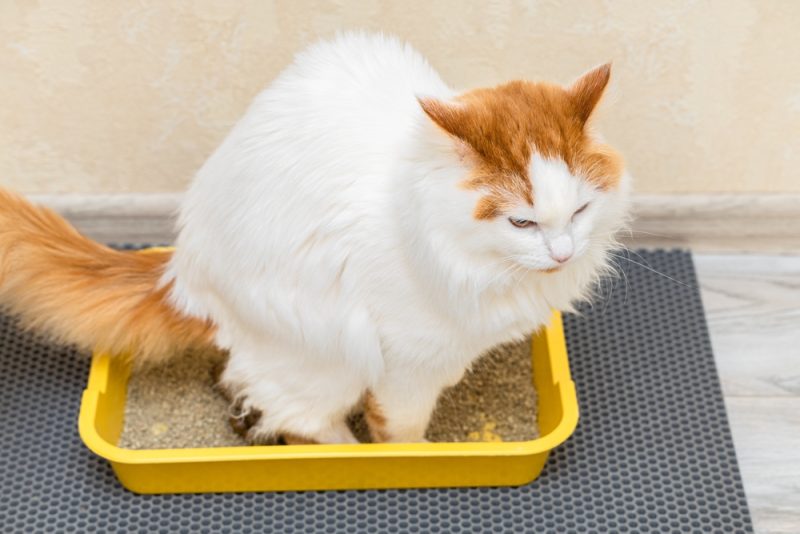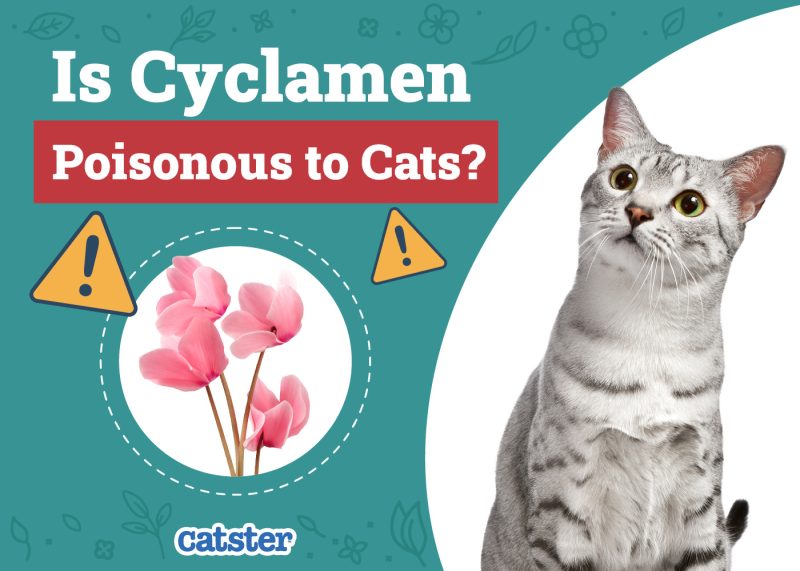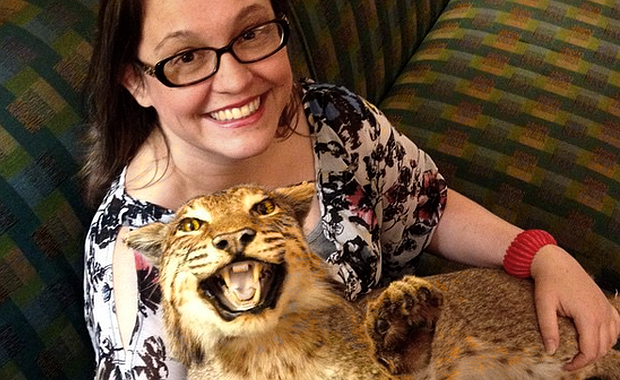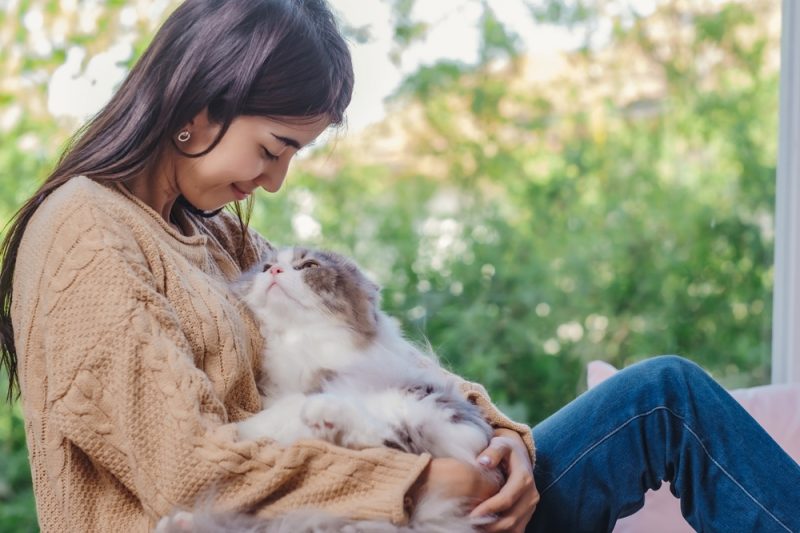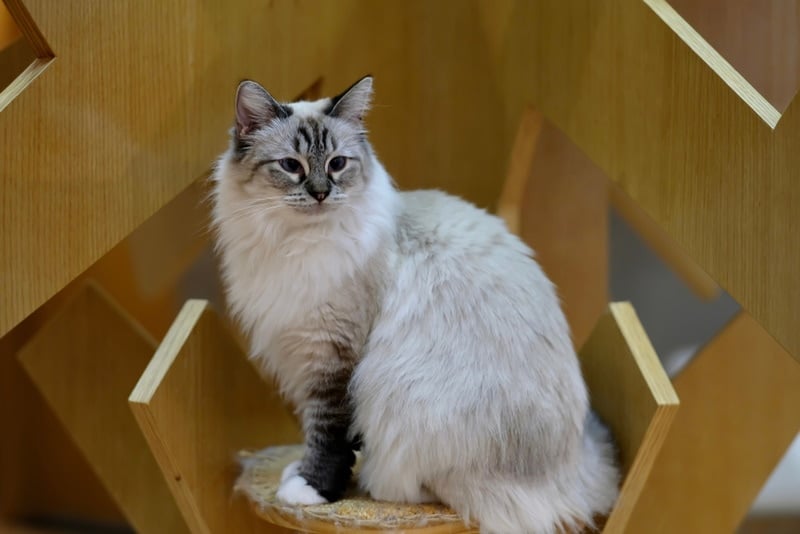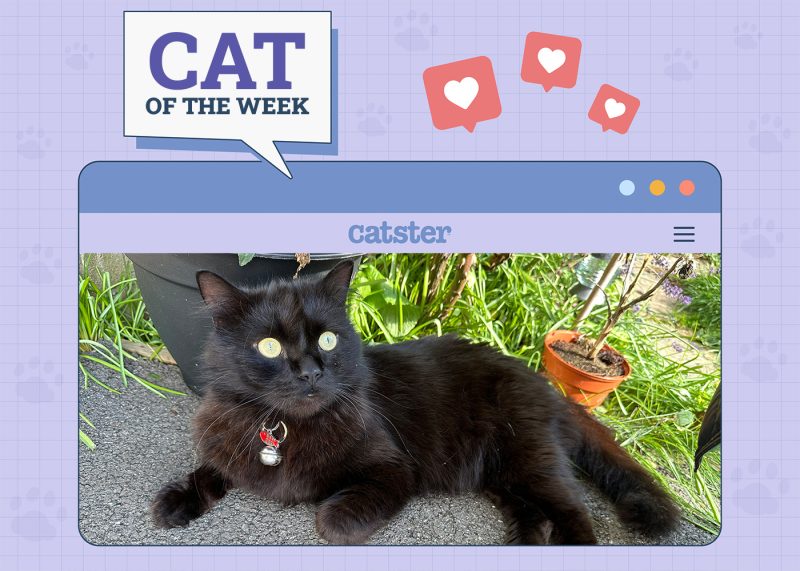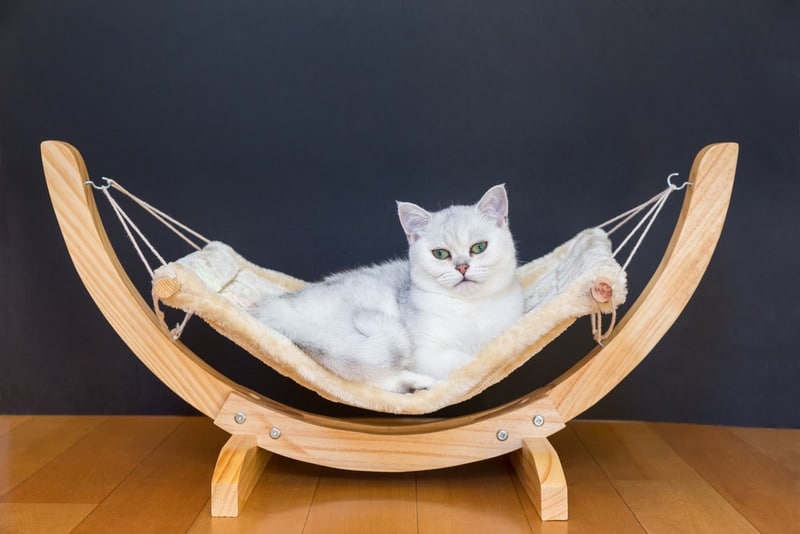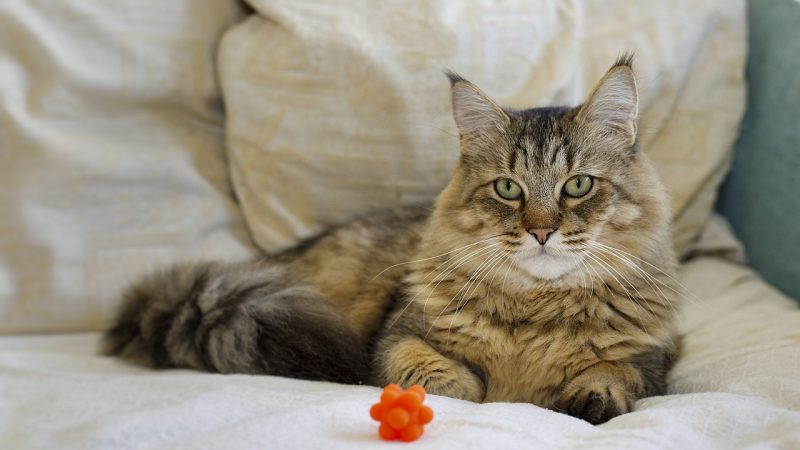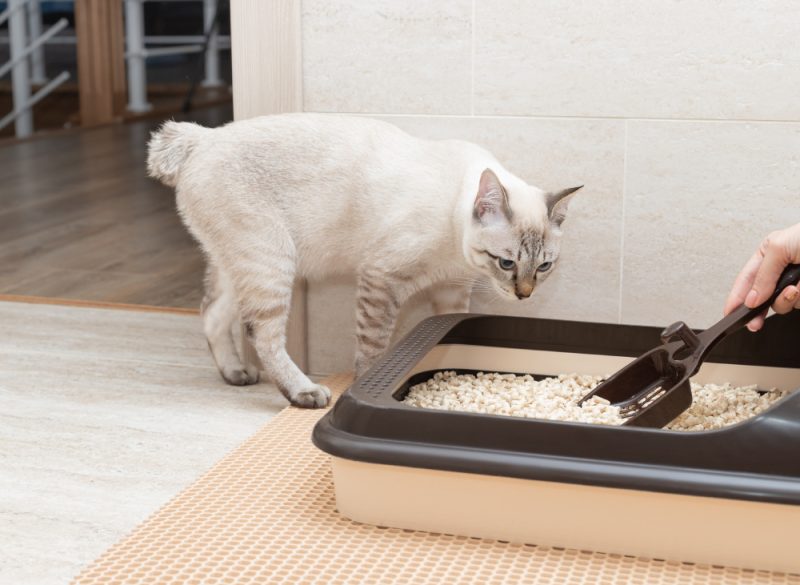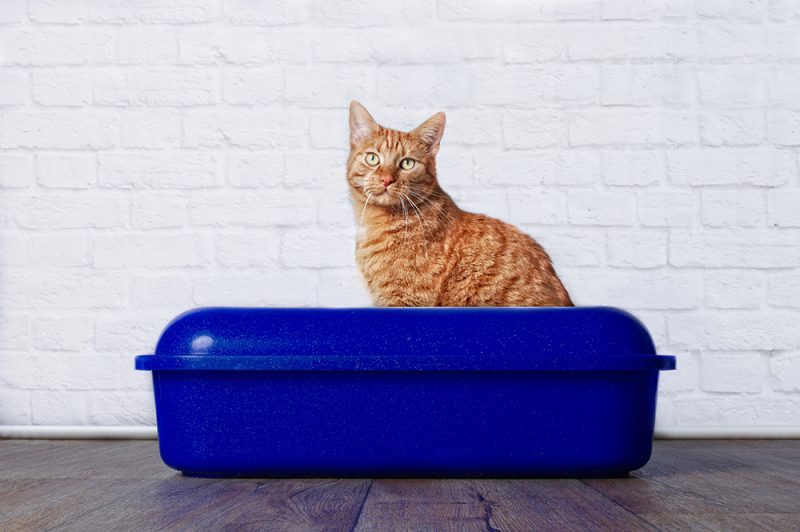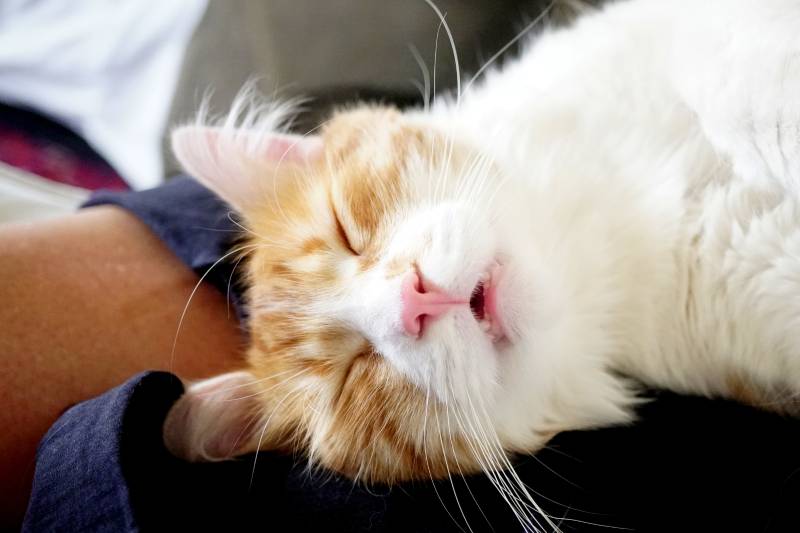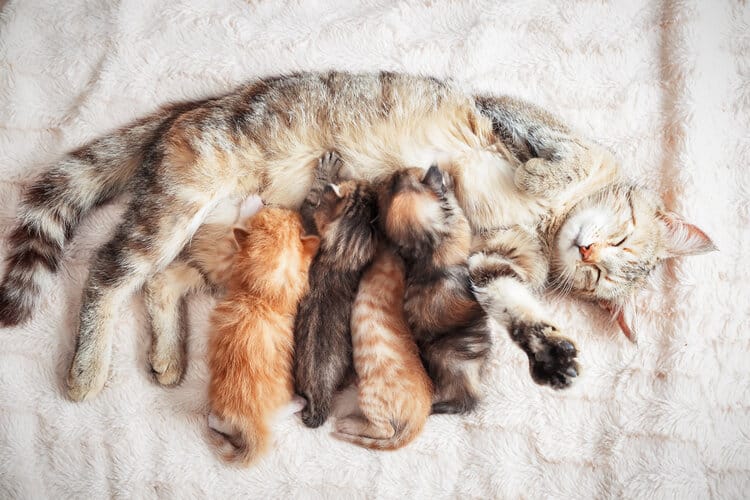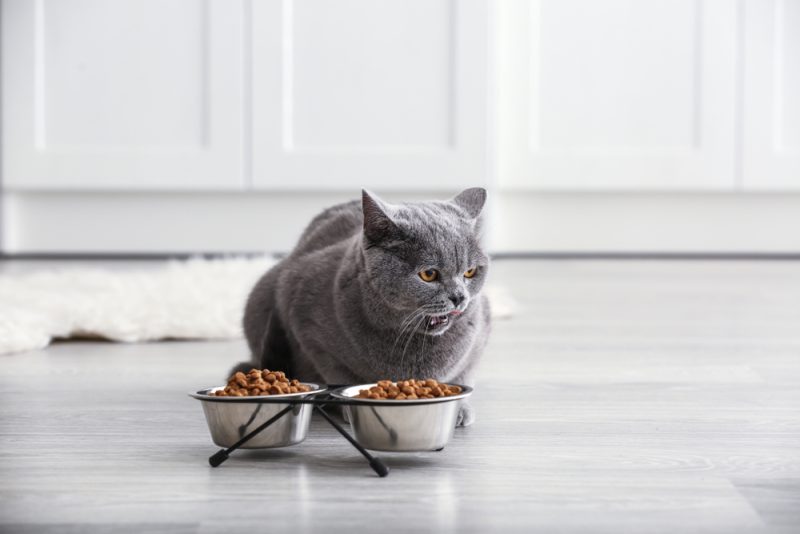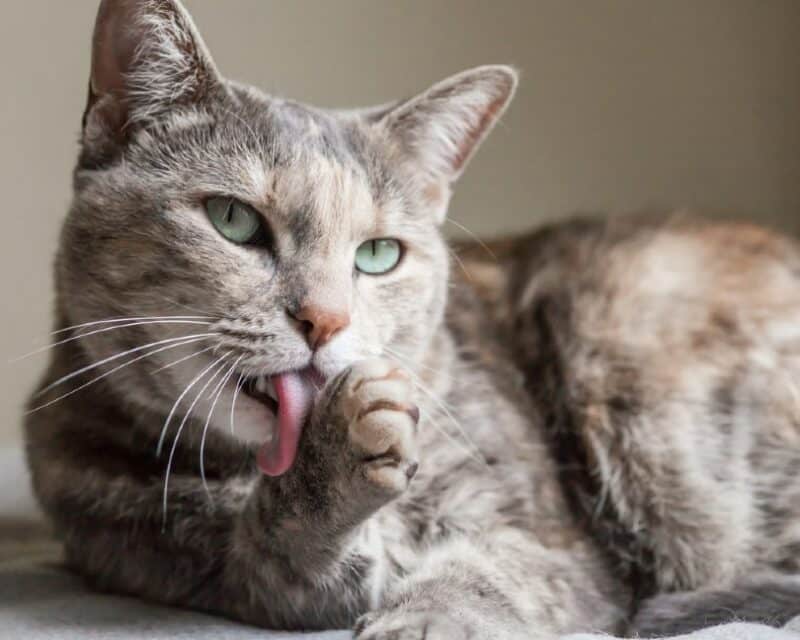We do our best to keep our cats as healthy as possible, so it can be quite alarming when they start exhibiting unusual clinical signs. If you have noticed that your cat has begun leaking poop, also referred to as fecal incontinence, it can be incredibly concerning—and a bit messy.
It is highly recommended that you make an appointment with your veterinarian for the proper diagnosis and treatment if you notice that your cat is struggling with any form of incontinence or has begun exhibiting any other unusual signs. There are a few common reasons that this may be happening, and we go over them in detail here.

The 5 Tips for Cleaning Up After Your Cat
If you have a cat that is leaking poop, you are bound to have a mess on your hands. After you have washed your kitty off and made them comfortable, you will inevitably have to clean up the mess in your home. Here are some tips for cleaning up the icky poop mess left behind.
1. Use an Enzyme Cleaner
Whether you are cleaning a carpet or a hard floor, you will want to finish your cleanup with an enzymatic cleaner that removes stains and odors. Enzyme cleaners are among the safest and most effective methods for cleaning pet messes of any kind. The enzymes will break down the bacteria in the mess to eliminate the smells and stains, rather than masking them.
Our Favorite Enzyme Cleaner The Hepper Advanced Bio-Enzyme Pet Stain & Odor Eliminator Spray is our favorite enzyme cleaner out there. It permanently removes even the very worst kitty stains and smells, leaving your home fresh and clean! Click here to learn more about this amazing product and get yourself a bottle.
At Catster, we’ve admired Hepper for many years, and decided to take a controlling ownership interest so that we could benefit from the outstanding products of this cool cat company!
2. Glove Up
Cat feces can contain parasites, including toxoplasmosis, which is especially dangerous for pregnant people. You don’t want any poop coming into contact with your skin, anyway. It’s recommended that any cat owner keeps a box of gloves aside for this reason.
3. Use Paper Towels to Pick Up the Poop
Clean up any poop that you can with paper towels, and dispose of them properly. It’s best to take the mess right out to the outdoor dumpster, not only to prevent the stench in the house but also to prevent dogs or young children from getting into the mess.
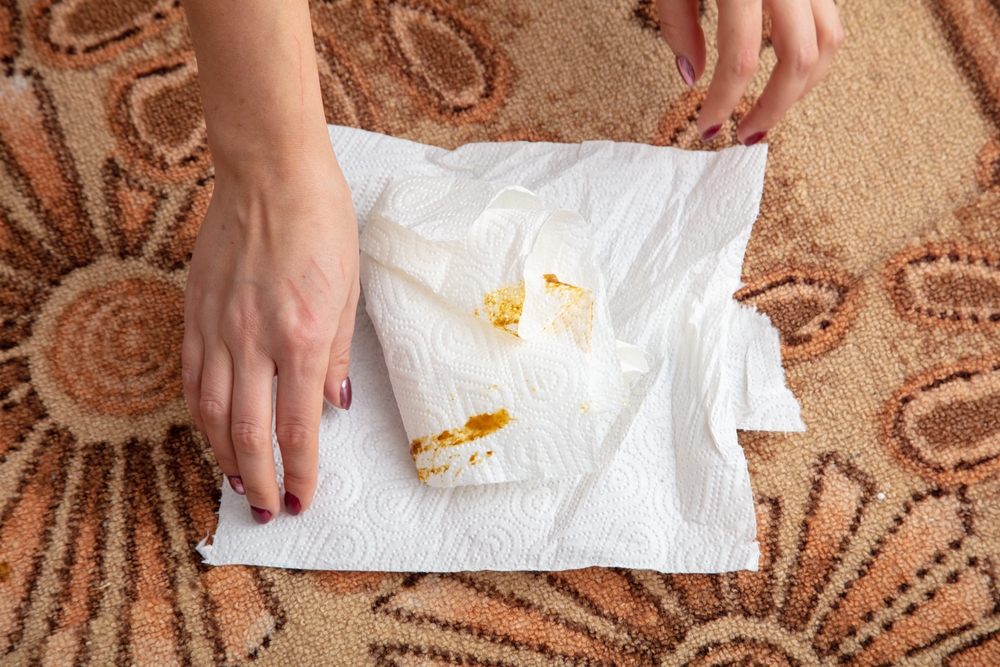
4. Rinse the Area With Cool Water, Then Dry
It’s no secret that if the mess is on a hard floor, cleanup will be simple. If the poop was on the carpet, though, that area will certainly need some TLC. Once you’ve cleaned up the poop, rinse the area with cool water, then blot dry with a towel.
5. Consider Investing in a Carpet Cleaner
One of the household appliances that comes highly recommended to pet owners is a carpet cleaner. This is especially true for those who have a lot of carpeted areas in the home. Pet messes are bound to happen, and whether you have a handheld spot cleaner or a full-sized carpet cleaner, they are typically worth the investment. They use a combination of cleaning solution, scrub brushes, and suction to shampoo the carpets clean and can either be purchased or rented at your local home improvement store.

The 5 Reasons Your Cat Might Be Leaking Poop
1. Diarrhea
| Signs: | Loose, watery stool, lack of appetite, weakness or malaise, defecating outside the litter box |
| Diagnosis: | Physical examination, stool sample |
| Treatment: | Depends on the root cause |
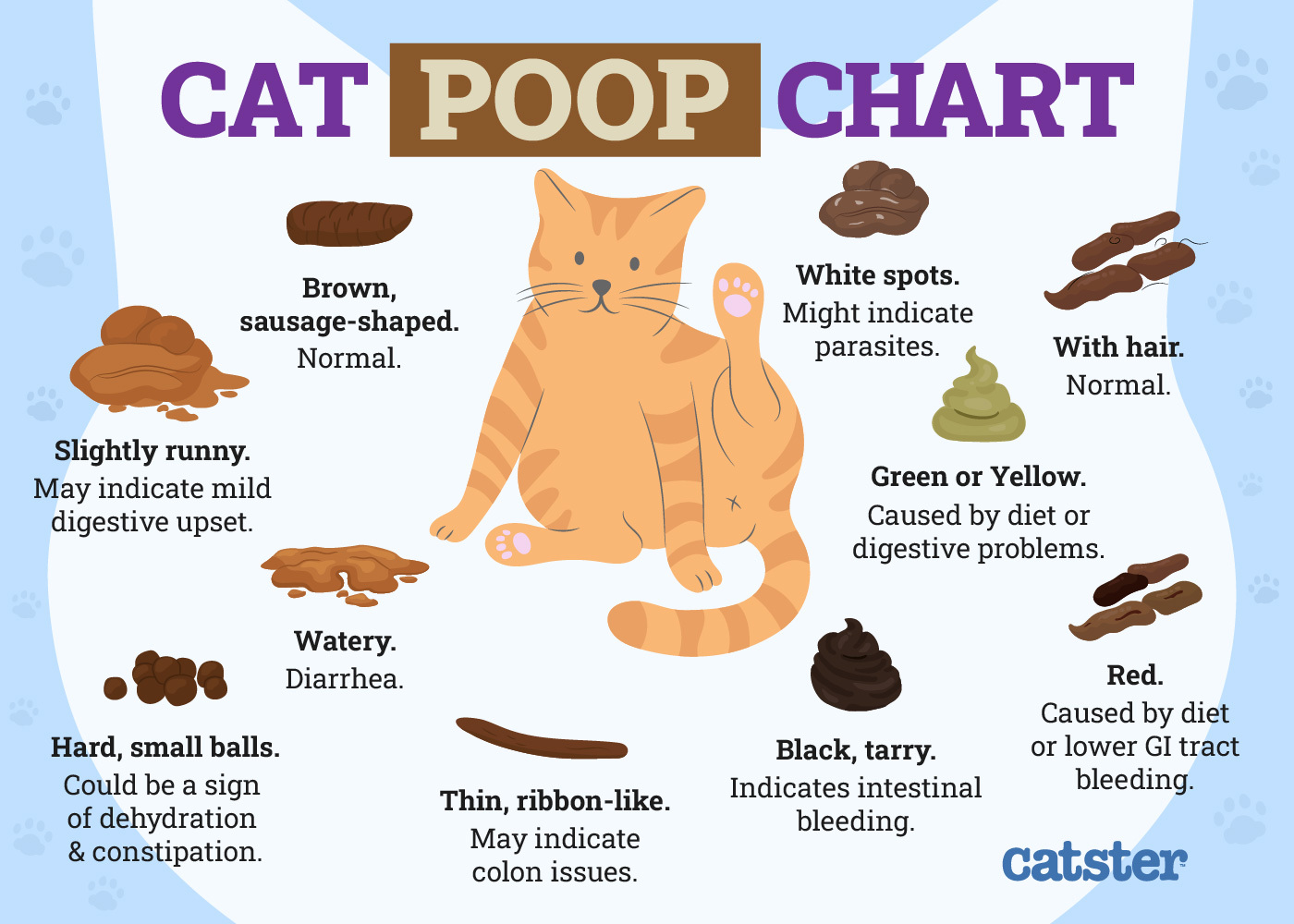
Diarrhea is a loose, unformed, and watery stool. It can have a wide variety of causes, ranging from stress to gastrointestinal disease and more. It’s most often the sign of a more generalized root problem, and it could easily result in the leaking of feces.
It won’t be much of a secret that your cat is suffering from diarrhea unless they live outdoors. You will be able to notice the stool texture quite easily when cleaning the litter box. In severe cases, cats may have trouble making it to the litter box, so accidents are fairly common too.
- Causes
The most common causes of your cat leaking poop include food intolerance, changes in diet, parasites, allergies, bacteria, viruses, or exposure to toxins. The severity of diarrhea depends on how persistent the problem is and any other accompanying signs.
- Signs and Treatment
Ongoing diarrhea warrants a visit to the veterinarian, as it can lead to severe dehydration. You must make sure your cat has enough access to hydration through fresh water and fresh or canned food (if part of their regular diet.) They should also be taken to the vet promptly if their diarrhea is accompanied by other signs, including weakness, fever, lack of appetite, vomiting, or any signs of pain.
Your veterinarian will perform a thorough examination and may even take a stool sample or other diagnostic tests, depending on the situation. Treatment is highly dependent on the root cause of the problem, though if appropriate, an anti-diarrheal may be administered.
2. Bowel Incontinence
| Signs: | Leaking stool, inability to control defecation, redness or inflammation near the rectum |
| Diagnosis: | Rectal examination, diagnostic imaging |
| Treatment: | Dependent upon the underlying cause |
Bowel incontinence refers to the inability to control bowel movements. There are two separate categories of bowel incontinence: reservoir incontinence and sphincter incontinence. Reservoir incontinence is associated with any disease of the rectum that prevents stool from being stored or held normally.
Reservoir Incontinence
If a cat is suffering from reservoir incontinence, they are incapable of storing a normal volume of feces in the rectum, which results in the inability to control bowel movements. Conditions that affect parts of the large intestine, such as inflammatory bowel disease or cancer, may cause this.
Sphincter Incontinence
If your cat is suffering from bowel incontinence and is leaking poop, they may very likely be suffering from sphincter incontinence. The primary cause of this condition is typically a wound, mass, or nerve damage that disrupts the sphincter’s functionality.
- Diagnosis and Treatment
Diagnosis of bowel incontinence requires a medical examination with a specific focus on the rectal area. If the veterinarian is concerned that the cause could be neurologically related, diagnostic imaging may be necessary to get to the root cause. Treatment for either of these categories will depend on the underlying cause of the condition.
If you need to speak with a vet but can't get to one, head over to PangoVet. It's an online service where you can talk to a vet online and get the advice you need for your pet — all at an affordable price!

3. Anal Sac Disease
| Signs: | Licking or biting the anal region, scooting their butt across the floor, strong odor, leaking brown fluid, hair loss near the base of the tail, reluctance to defecate |
| Diagnosis: | Rectal examination |
| Treatment: | Anal gland expression, anti-inflammatory medication, antibiotics (if an infection is present), surgery (severe, chronic cases) |
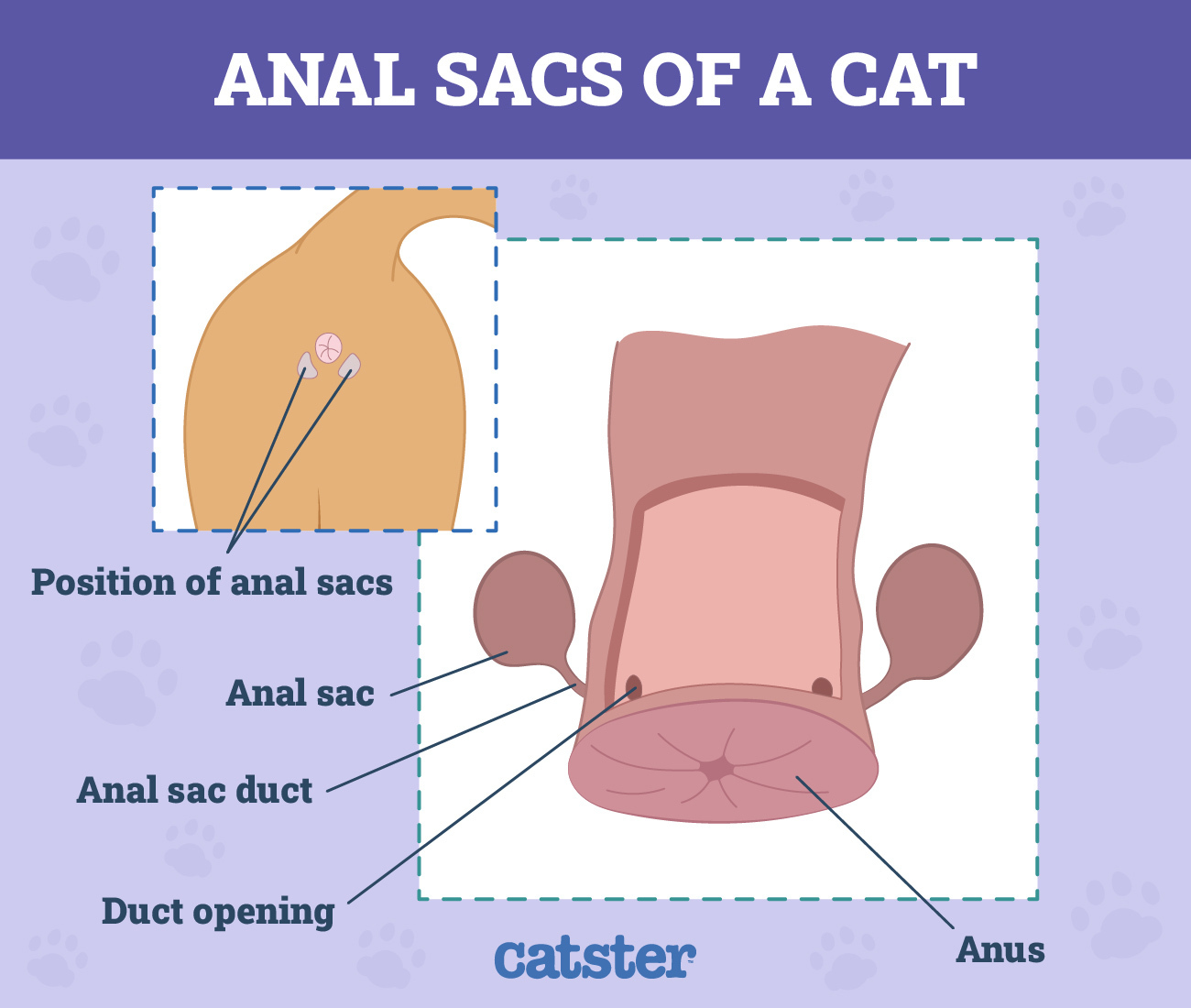
One of the reasons that a cat could be leaking from their behind is anal sac disease. This condition is more common in dogs, but cats are also susceptible.
The anal sacs are two small pouches located on each side of the lower area of the anus. The walls of the anal sacs are lined with sweat glands that produce a very foul-smelling fluid, which is stored in the sacs and released through a small duct.
The fluid is very similar to that of skunks. But for cats, it’s used to mark territory, and small amounts are secreted during defecation. If these anal sacs become inflamed or infected, the ducts become swollen, and the fluid cannot be released properly, leading to impaction.
- Signs and Treatment
Anal sac disease can vary in severity and the first sign is typically butt-scooting across the floor or excessive grooming of the anal area. Leakage of this fluid can occur, and it is commonly mistaken for feces.
A veterinarian will do a thorough examination, which includes a rectal exam to properly diagnose the condition. The impaction can be caused by a variety of reasons, including inflammatory bowel disease, obesity, and food allergies.
Treatment includes expressing the anal glands and flushing out the contents, which is a smelly ordeal. Some cats may require sedation for this process. Most cats are sent home with anti-inflammatory medication to help relieve pain and swelling. Antibiotics may also be necessary, especially if there is an infection present.
Anal sac disease is not typically a recurring condition in cats like it is in dogs, and you should work with your veterinarian to help determine and treat the root cause. If this is something you suspect, make sure to visit the veterinarian promptly, as older cats have been known to develop cancer of the anal sacs.
4. Inflammatory Bowel Disease
| Signs: | Vomiting, diarrhea, weight loss, lack of appetite, lethargy, bloody stool |
| Diagnosis: | Ultrasound, endoscopy, tissue biopsy |
| Treatment: | Dietary changes, supplementation, immunosuppressive medications |
Inflammatory bowel disease, or IBD for short, refers to chronic irritation of the gastrointestinal system. It is considered a syndrome, rather than a specific disease, and it can affect any part of the GI tract but most commonly affects the stomach and/or intestines. It can result in the malabsorption of nutrients, digestion difficulties, and chronic diarrhea.
- Causes
Inflammatory bowel disease can have a variety of causes, including food allergies or intolerance, bacterial infection, or parasites. The root cause is often unknown and may be difficult to determine, especially if treatment for the more common causes is ineffective.
- Diagnosis and Treatment
Diagnosis is typically done through diagnostic imaging—more specifically, an ultrasound—which will reveal the thickness of the lining of the stomach and intestines. An endoscopy may also be performed so that a tissue biopsy can be collected and tested.
Treatment is dependent upon the cause of the condition. If a cat has been suffering from parasites, deworming medication will be administered. If it’s dietary related, your veterinarian will assist you in making the necessary changes. Supplementation and immunosuppressive medication are also common treatments.
So, if you notice that your cat is leaking poop or has chronic bouts of diarrhea, it’s best to have them checked out by the veterinarian to rule out IBD as a potential cause.
5. Gastrointestinal Parasites
| Signs: | Dull coat, diarrhea, lack of appetite, pot-bellied appearance, pale mucous membranes, segments of worms in stool, stool containing blood or mucous |
| Diagnosis: | Microscopic examination of fecal sample |
| Treatment: | Anti-parasitic medication |
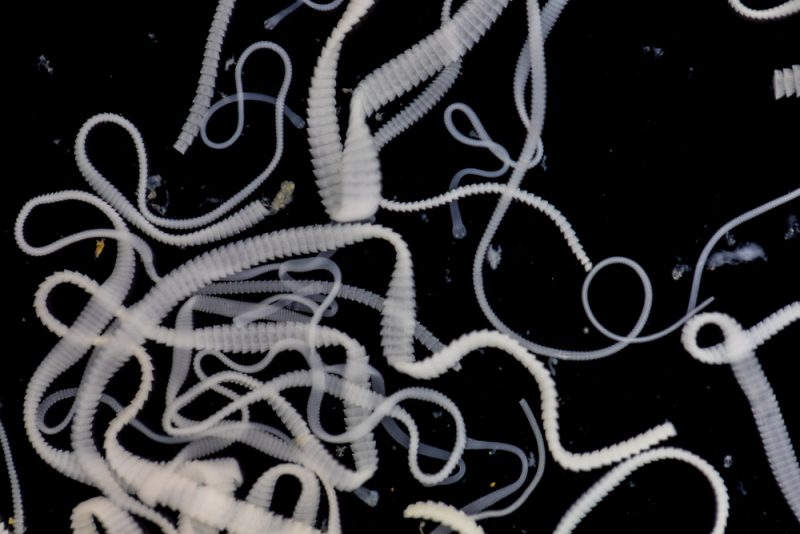
Gastrointestinal parasites come in many forms, and many cats are affected by roundworms, hookworms, and tapeworms. Internal parasites can lead to serious problems in young kittens and cats with weakened immune systems.
Parasites can lead to conditions like anemia, intestinal obstruction, poor nutrient absorption, and stunted growth and development in youngsters. Signs can vary depending on the type of parasite that is present, but even the healthiest of cats will exhibit telltale signs if the infection is severe.
- Signs and Treatment
Diarrhea is a very common sign of many conditions, and a parasitic infection is certainly no exception. If you have noticed your cat leaking poop from their backside, it’s time to make an appointment with the veterinarian to rule out these pesky parasites.
The vet will give your cat an overall health examination and collect a stool sample to look at under the microscope. Once identified, your cat will be given the appropriate medication to eliminate the parasites. Any other signs related to the infection will also be treated if severe enough.

Conclusion
If you’ve noticed that your cat is leaking poop everywhere, it’s time for a visit to the veterinarian. There are several potential reasons this could be happening, and you want to get a proper diagnosis from a medical professional so that your cat can receive appropriate treatment.
It’s a good idea to keep a stash of cleaning supplies for those unfortunate accidents that are bound to happen at some point or another. Also, make sure to thoroughly clean your cat and any areas of the home that were soiled.
Featured Image Credit: Oleg Opryshko, Shutterstock
